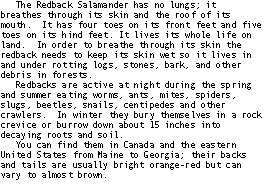A neat thing that's happening right now is that every person who's a mayor in the United States has sort of awoken to find him or herself looking upon a normally far-flung boundary, that being the line where our world ends and the real one (relatively speaking) that contains it, begins. I wouldn't blame anyone who faced that border and saw a noble towering bulwark, or a crumbling dike, or whatever, and imagined its condition to be in one way or another vital. But neither would I vote for that person. The line is, in fact, flat and incidental and imagined, and individuals who trust themselves and their fellows and want the best for everyone will know to cross it without a second's pause, because life is short and otherwise we might as well just lay down to rot.
����
Let's enjoy a Plymouth-related story:
����
About 350 years ago, ships were coming across the sea and the people aboard carried papers called "charters," which had it in writing how it was going to be once they landed and set up towns and systems and stuff. For the most part, life under a colonial charter was a lot more free than life in the home country, which was the main reason people signed on. In the charters were all kinds of provisions protecting the colonists' rights of religion and self-governance, and there actually did turn out to be a fair variety of governments in the colonies. Anyway, about 100 years later, the English king, James II or Charles II, I think, was upset at how much business the colonies were doing with countries besides England. The buzzword was "mercantilism," which basically meant to say, "hey, you, colonies - you have a role here, and that is you harvest North American raw materials and send them back over here for us to weave and carve and roll into English profits." This was manifest in the lawbooks, and colonial governors were having to okay things with the Crown, and officals were sent over to monitor American exports. First it was like, "damn, how are we going to sneak tobacco onto Dutch ships with all these royal cops around?" but then they remembered how it had all begun 100 years before, when their great-grandparents came over with charters and set themselves up with town councils and voting and crap, and happily governed themselves, as agreed, along the original intent. After remembering that, it was like "ho! ye shalt not pull this fast one, bitches" and (approximately) so began the drive for independence.
����
Anyway, in recent weeks a term that's been kind of dormant for a while has popped up - "civil disobedience," which is the thing I'm talking about. The other way people are describing it is, you know, blatant disregard for or flauting of this or that time-honored system of reporting to offices and their old, framed pieces of paper; and no sir, I don't mean any disrespect to our nation's laws sir, but jesus. Let's keep at least a tiny bit of perspective.
����
I suggest you go see the awesome IMAX movie about undersea volcanoes.
0 Comments







